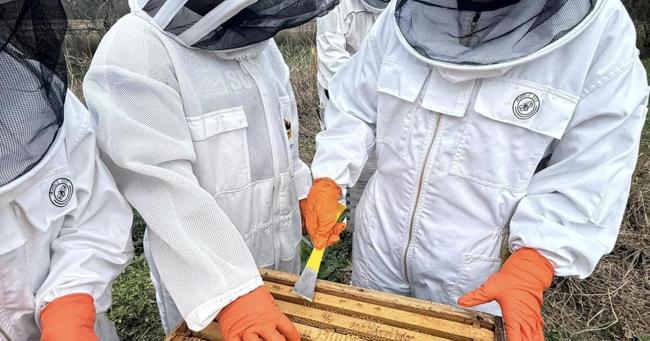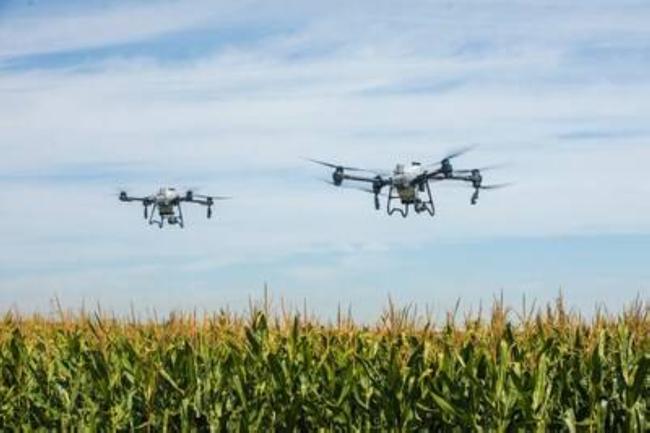Summary
The study of bees took flight at the high school in 2023, after it applied for and received a $10,000 grant from the Louisiana Department of Agriculture and Forestry that provided bees, hives, beekeeping suits, hoods, gloves and classroom books.
Source: NOLA.com

AI News Q&A (Free Content)
Q1: How has the introduction of beekeeping at Zachary High School impacted students' understanding of agriculture?
A1: The introduction of beekeeping at Zachary High School, supported by a $10,000 grant from the Louisiana Department of Agriculture and Forestry, has provided students with hands-on experience in agriculture. This initiative has equipped students with beekeeping suits, hives, and educational materials, enhancing their understanding of the importance of bees in ecosystems and agriculture. Such programs are likely to increase students' appreciation for sustainable farming practices and promote interest in agricultural careers.
Q2: What are some modern technological innovations in agriculture that could complement educational programs like Zachary High's beekeeping initiative?
A2: Modern technological innovations, such as IoT-based smart hive systems like HiveLink, can significantly enhance educational programs like Zachary High's beekeeping initiative. These systems utilize sensors to monitor hive conditions in real-time, providing data on temperature, humidity, and hive weight. This technology allows for early disease detection and proactive hive management, making it a valuable educational tool for teaching students about the integration of technology in sustainable agriculture.
Q3: What role does urban beekeeping play in enhancing environmental sustainability?
A3: Urban beekeeping contributes to environmental sustainability by supporting urban agriculture and biodiversity. Bees in cities help pollinate flowers and crops, which enhances green spaces and increases yields in community gardens. Urban bees often have access to diverse plants, producing unique honey and promoting ecological balance. Despite challenges like space limitations, urban beekeeping provides economic and environmental benefits by fostering a healthier urban ecosystem.
Q4: How do educational beekeeping programs influence students' perspectives on sustainability and environmental responsibility?
A4: Educational beekeeping programs like the one at Zachary High School play a crucial role in shaping students' perspectives on sustainability and environmental responsibility. By engaging directly with beekeeping, students learn about the critical role bees play in pollination and food production. This hands-on experience fosters a deeper understanding of ecological balance and the importance of sustainable practices in agriculture, encouraging students to adopt environmentally responsible behaviors.
Q5: What are the key findings from recent studies on sustainable beekeeping practices?
A5: Recent studies highlight the effectiveness of integrating technology in sustainable beekeeping. For instance, precision beekeeping systems equipped with IoT technologies have been shown to improve hive management by providing real-time data on environmental conditions. This approach not only enhances productivity but also supports the health of bee colonies by enabling early intervention in cases of disease or environmental stress, thereby promoting sustainable beekeeping practices.
Q6: What lessons can be learned from ancient agricultural innovations and applied to modern agricultural practices?
A6: Ancient agricultural innovations, such as the Inca Empire's terrace farming, offer valuable lessons for modern agriculture. These sustainable methods demonstrate effective resource use and adaptation to environmental conditions. By studying such practices, modern agriculture can adopt similar strategies to enhance food production and resilience against challenges like climate change. Integrating traditional wisdom with contemporary technology can lead to more sustainable and productive farming systems.
Q7: How can the integration of ICT in agriculture improve productivity and food security in developing regions?
A7: The integration of ICT (Information and Communication Technology) in agriculture has the potential to significantly improve productivity and food security, particularly in developing regions. ICT innovations, such as mobile-based services and radio broadcasts, provide farmers with timely and accurate agricultural information, enhancing their decision-making capabilities. These technologies facilitate better resource management, increase crop yields, and ultimately contribute to improved food security by addressing challenges specific to these regions.
References:
- Urban beekeeping
- HiveLink, an IoT based Smart Bee Hive Monitoring System
- Transforming Agriculture: Exploring Diverse Practices and Technological Innovations
- Transforming Agriculture: Exploring Diverse Practices and Technological Innovations
- Agricultural Economics and Innovation in the Inca Empire
- Adoption of ICT innovations in the agriculture sector in Africa: A Systematic Literature Review
- Analysis of Energy Consumption in a Precision Beekeeping System





